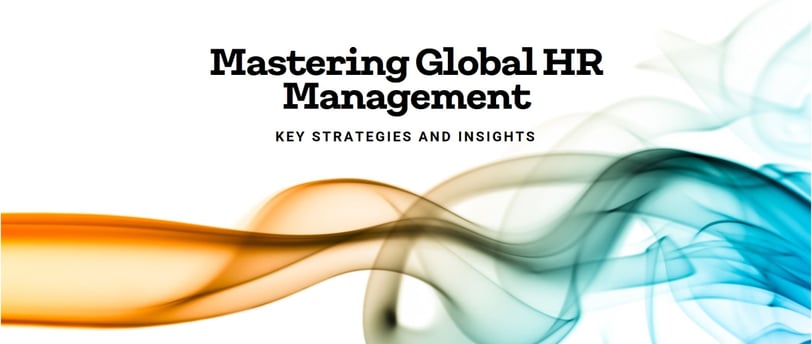Mastering the Role of a Global HR Manager
Discover how to excel as a global HR manager. Learn key strategies, address common challenges, and explore actionable tips to manage HR on an international scale.
Versatean Services Unlimited
12/2/20242 min read


In today’s interconnected world, the role of a global HR manager is more critical than ever. Businesses are scaling across borders, creating a demand for leaders who can navigate complex international labor laws, manage diverse teams, and align HR strategies with organizational goals on a global scale.
What exactly does this role involve, and how can HR professionals excel in this demanding position? This guide answers key questions, offers actionable insights, and outlines strategies to help you succeed as a global HR manager.
What is a Global HR Manager?
A global HR manager oversees human resources operations across multiple countries. They manage hiring, compliance, training, and employee engagement on an international scale. Their work involves:
Designing HR policies that align with varying cultural and legal standards.
Ensuring compliance with global labor laws.
Developing strategies for remote and cross-border team collaboration.
Driving diversity, equity, and inclusion initiatives worldwide.
Key Responsibilities
Recruitment: Attracting talent in multiple regions.
Compliance: Navigating local labor laws and global regulations.
Employee Development: Ensuring team members receive training tailored to cultural and professional needs.
Compensation and Benefits: Balancing competitive packages across regions.
Conflict Resolution: Managing interpersonal or cross-cultural disputes.
Frequently Asked Questions About Global HR Managers
1. How does a global HR manager ensure legal compliance across countries?
They stay updated on local laws, hire regional experts, and create compliance checklists. Regular audits ensure policies meet international and local standards.
2. What skills are essential for success?
Strong cultural intelligence.
Knowledge of global labor laws.
Proficiency in HR technologies.
Leadership and adaptability.
3. How do they handle cultural differences?
Global HR managers foster open communication and provide cultural sensitivity training. They design policies that respect local customs while maintaining company values.
4. What are the biggest challenges?
Navigating complex labor laws.
Managing time zones for global teams.
Handling payroll and taxation across borders.
5. How do they support diversity and inclusion?
They promote hiring practices that value diverse backgrounds and implement training to eliminate unconscious bias.
Strategies to Excel as a Global HR Manager
1. Build a Strong Compliance Framework
Understanding labor laws is critical. Use tools like international legal databases and hire local HR consultants to ensure compliance. Automating compliance monitoring with HR software can minimize errors.
2. Foster Cross-Border Communication
Leverage technology to bridge communication gaps. Tools like Slack, Zoom, and Microsoft Teams enable real-time collaboration across time zones. Establish clear communication protocols and encourage feedback to improve team dynamics.
3. Invest in Employee Training
Provide learning opportunities tailored to local markets. Offer multilingual training resources and workshops on cultural awareness. This empowers teams to work cohesively, despite differences.
4. Optimize Compensation Strategies
Use global benchmarking to create competitive salary structures. Include region-specific benefits like healthcare or housing allowances. Tailor these offerings to suit each region's expectations and legal requirements.
5. Promote Flexibility and Inclusion
Support hybrid work models that allow employees to balance their professional and personal lives. Foster an inclusive culture by celebrating local holidays and traditions.
The Future of Global HR Management
Global HR management is evolving with trends like remote work, AI-driven HR solutions, and increasing emphasis on employee well-being. According to Deloitte, 79% of companies are shifting towards remote or hybrid models, making HR managers pivotal in creating seamless virtual work environments.
Technology will play a larger role in managing global teams. Tools like AI-driven analytics help HR managers predict employee turnover, measure engagement, and optimize productivity.
Versatean Services Unlimited
Expert virtual assistants for your business needs.
Support
+1-863-296-2002
Versatean Services Unlimited © 2024. All rights reserved.
